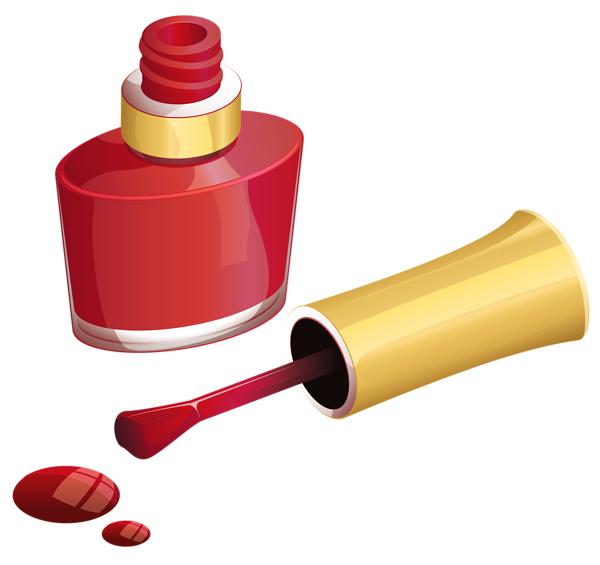
This image has format transparent PNG with resolution 600x565.
You can download this image in best resolution from this page and use it for design and web design.
Nail polish PNG with transparent background you can download for free, just click on download button.
Nail polish (also known as nail varnish or nail enamel) is a lacquer that can be applied to the human fingernail or toenails to decorate and protect the nail plates. The formulation has been revised repeatedly to enhance its decorative effects, and to suppress cracking or flaking. Nail polish consists of a mix of an organic polymer and several other components, depending on the brand.
Nail polish originated in China and dates back to 3000 BC. Around 600 BC, during the Zhou dynasty, the royal house preferred the colors gold and silver. However, red and black eventually replaced these metallic colors as royal favorites. During the Ming dynasty, nail polish was often made from a mixture that included beeswax, egg whites, gelatin, vegetable dyes, and gum arabic.
In Egypt, the lower classes wore pale colors, whereas high society painted their nails a reddish brown color, with henna. Mummified pharaohs also had their nails painted with henna.
Colored nail polish did not make an appearance until the 1920s. Early nail polish formulas were created using basic ingredients such as lavender oil, Carmine, oxide tin, and bergamot oil. It was more common to polish nails with tinted powders and creams, and finishing off by buffing the nail until left shiny. One type of polishing product sold around this time was Graf's Hyglo nail polish paste.
Nail polish consists of a film-forming polymer dissolved in a volatile organic solvent. Nitrocellulose that is dissolved in butyl acetate or ethyl acetate is common. This basic formulation is expanded to include the following:
Plasticizers to yield non-brittle films. Dibutylphthalate and camphor are typical plasticizers.
Dyes and pigments. Representative compounds include chromium oxide greens, chromium hydroxide, ferric ferrocyanide, stannic oxide, titanium dioxide, iron oxide, carmine, ultramarine, and manganese violet.
Opalescent pigments. The glittery/shimmer look in the color can be conferred by mica, bismuth oxychloride, natural pearls, and aluminum powder.
Adhesive polymers ensure that the nitrocellulose adheres to the nail's surface. One modifier used is tosylamide-formaldehyde resin.
Thickening agents are added to maintain the sparkling particles in suspension while in the bottle. A typical thickener is stearalkonium hectorite. Thickening agents exhibit thixotropy, their solutions are viscous when still but free flowing when agitated. This duality is convenient for easily applying the freshly shaken mixture to give a film that quickly rigidifies.
Ultraviolet stabilizers resist color changes when the dry film is exposed to sunlight. A typical stabilizer is benzophenone-1.
Gel polish is a long-lasting variety of nail polish made up of a type of methacrylate polymer. It is painted on the nail similar to traditional nail polish, but does not dry. Instead it is cured under an ultraviolet lamp or ultraviolet LED. While regular nail polish formulas typically last two to seven days without chipping, gel polish can last as long as two weeks with proper application and home care. Gel polish can be more difficult to remove than regular nail polish. It is usually removed by soaking the nails in pure acetone (the solvent used in most nail polish removers) for five to fifteen minutes, depending on the formula.
Traditionally, nail polish started in clear, white, red, pink, purple, and black. Nail polish can be found in a diverse variety of colors and shades. Beyond solid colors, nail polish has also developed an array of other designs, such as crackled, glitter, flake, speckled, iridescent, and holographic. Rhinestones or other decorative art are also often applied to nail polish. Some polish is advertised to induce nail growth, make nails stronger, prevent nails from breaking, cracking/ splitting, and to even stop nail biting.
In this page you can download free PNG images: Nail polish PNG images free download